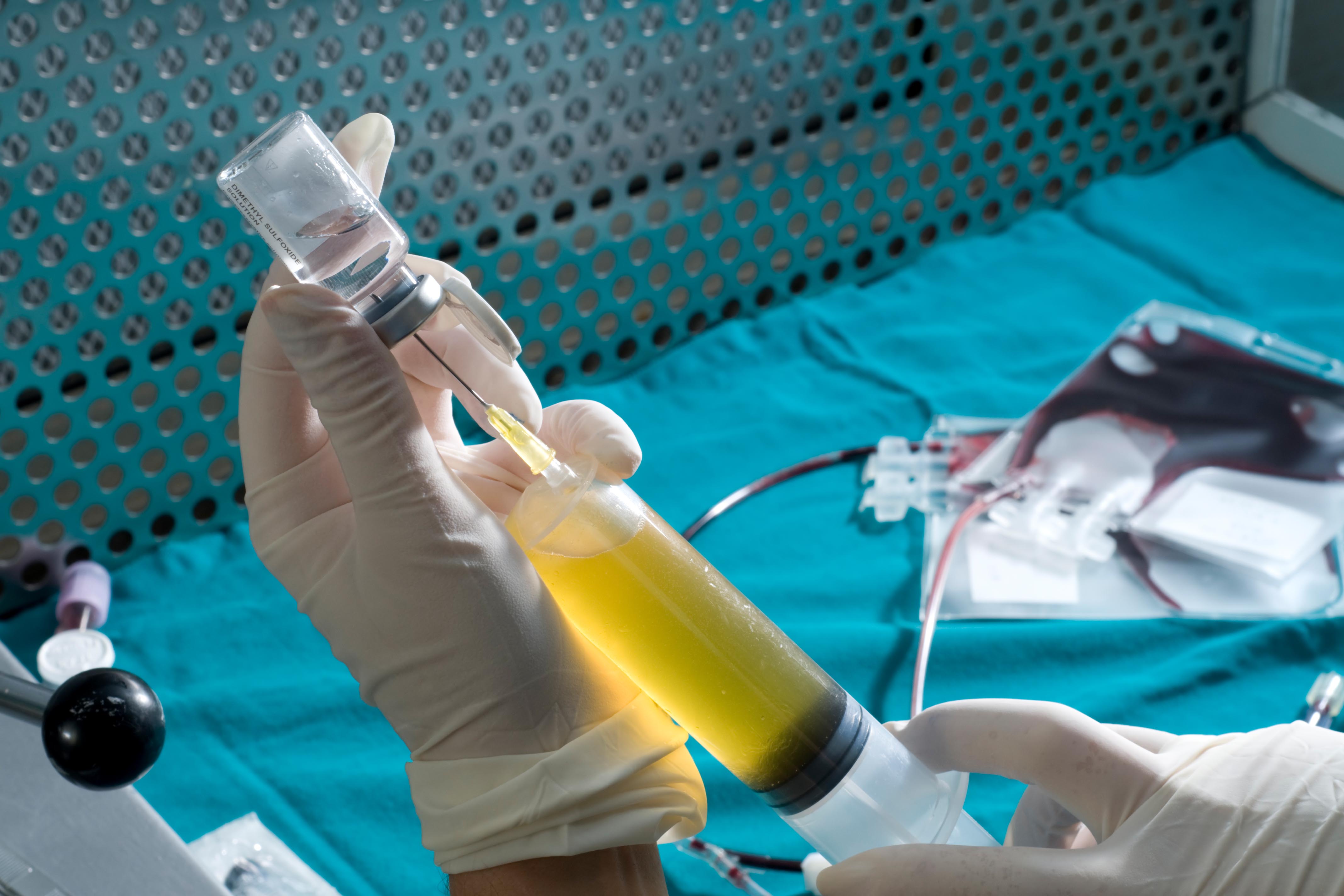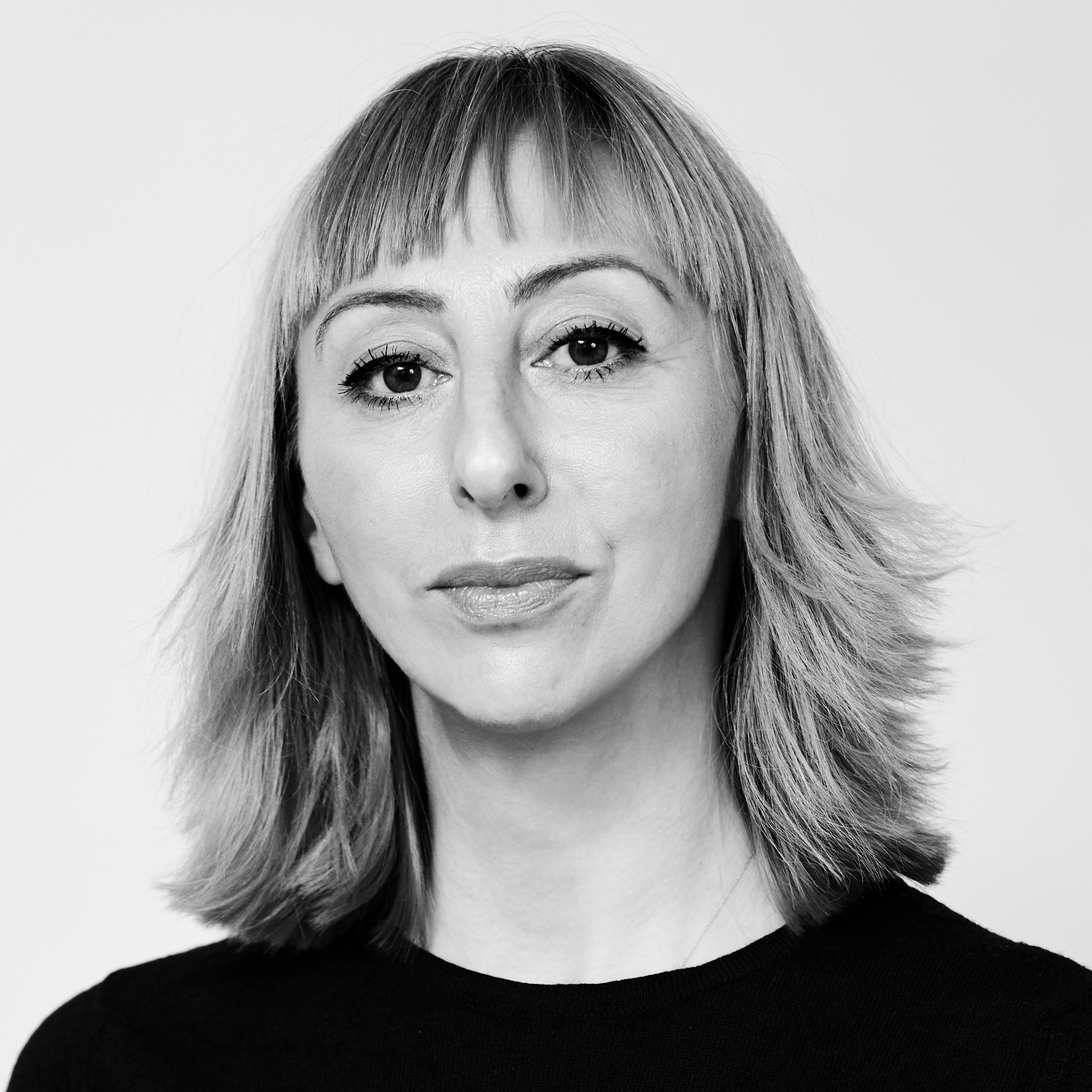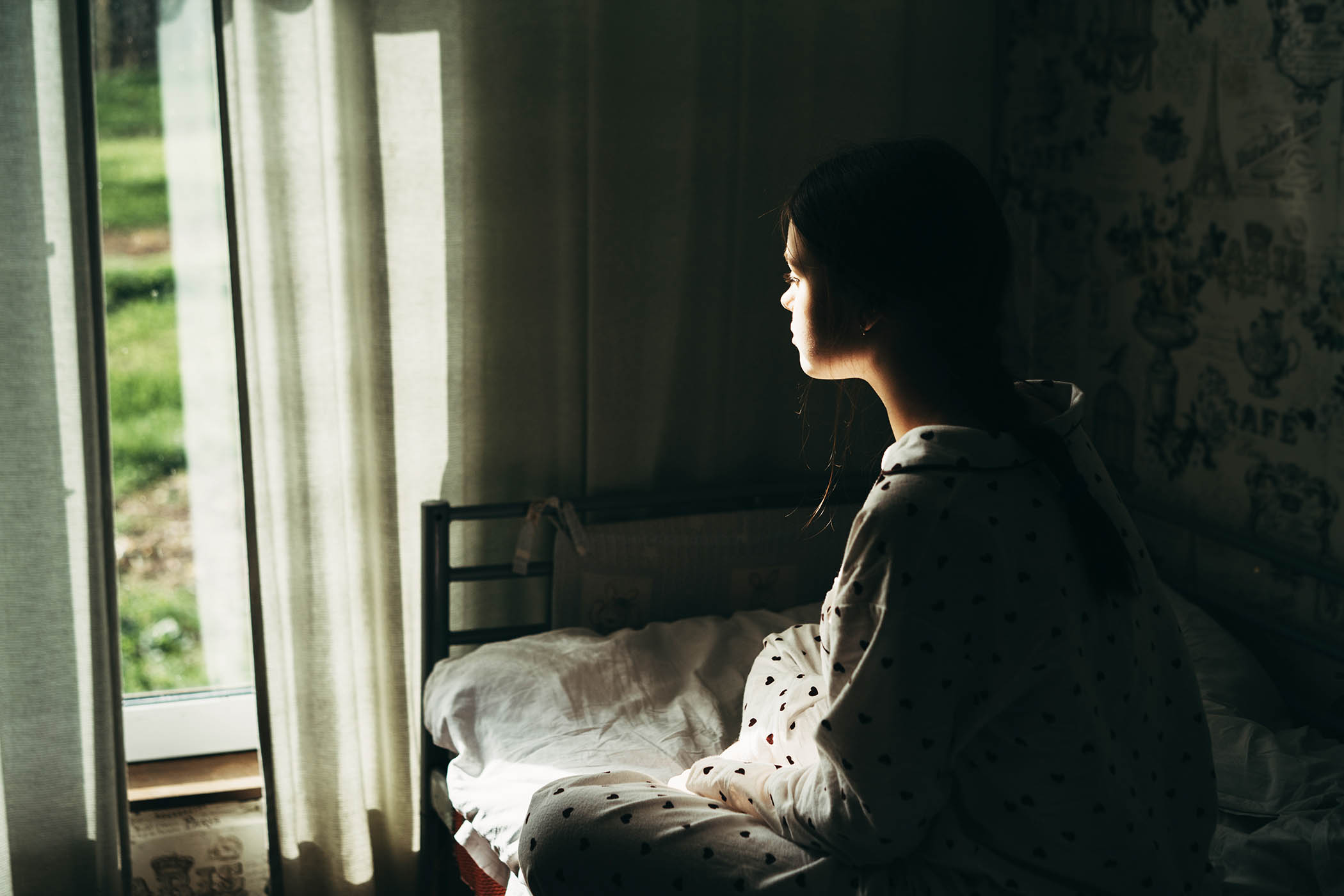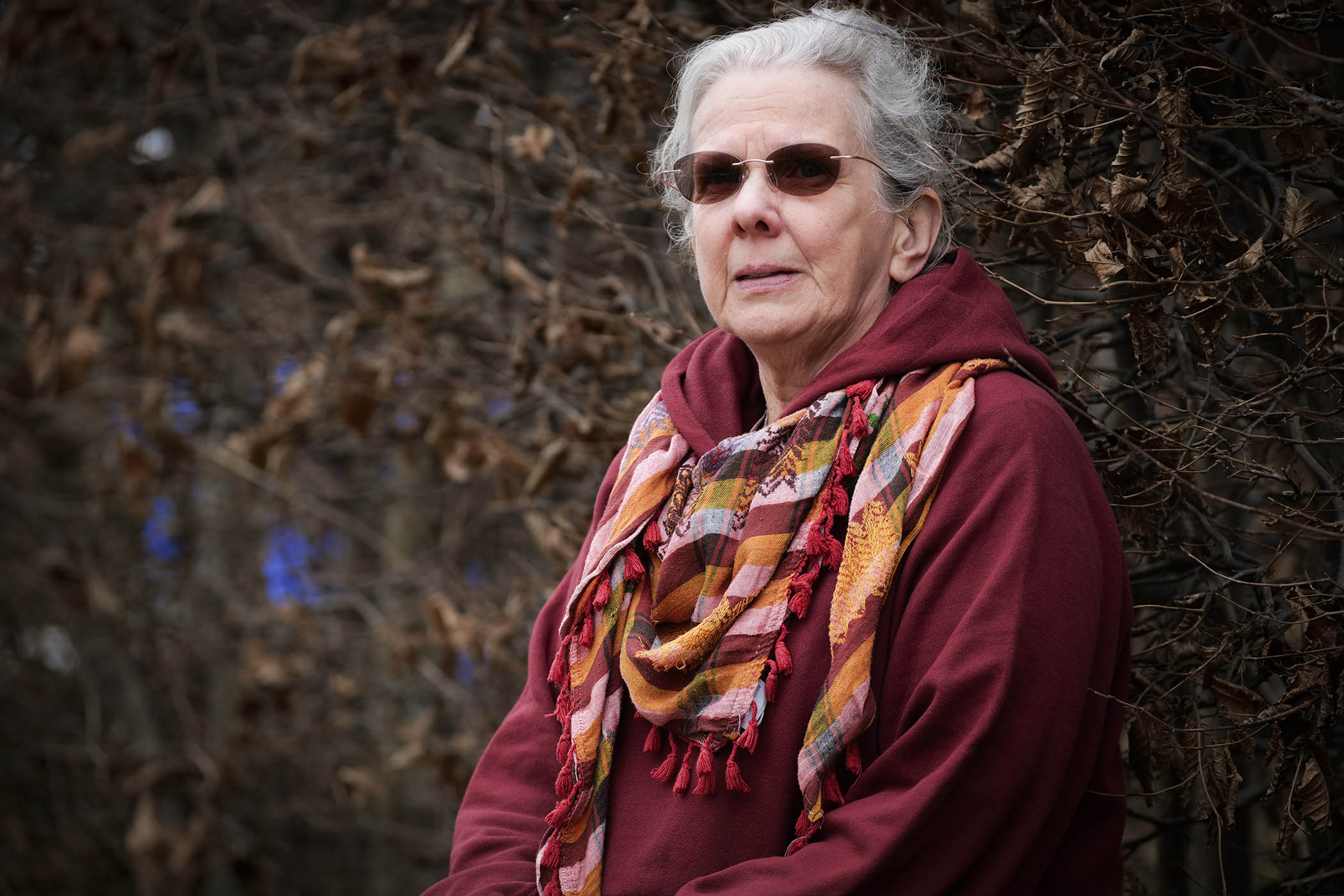You can listen to Eva Wiseman’s story on this week’s episode of The Slow Newscast, The Match: My Sister and her new DNA, here.
Three years ago, a bruise appeared on my sister’s knee. She went for a blood test and that afternoon the doctor turned up at her house, vaguely frantic. After the weekend she was diagnosed with leukaemia. I was getting a manicure when my mum called to tell me, her voice very low and measured, and over the following weeks as my natural nails started to grow in, the gel colour became a kind of diminishing clock, and time passed in ways that felt creeping and violent. My sister left her daughter and breastfeeding baby at home to move immediately into hospital, where we cut her hair very short and watched her enter a new, sterile world where dinner was at five and night didn’t exist. A photo of that haircut appears as a “memory” on my phone at the oddest times.
The daylight in her room was filtered, silver – I liked to take my laptop in and work from there in the afternoons. My mum made exquisite little feasts for her; when she had no appetite I’d help eat her biscuits. Two men came twice a day to run the taps and the shower for five minutes, something to do with germs. We learned to avoid watching films where a character suddenly developed, for instance, a persistent cough. And there was chemo, and endless tests, her blood now a terrible enemy in whose presence we needed to whisper, horror story clichés, “It’s inside the walls!” She needed a stem-cell transplant, quickly, and so she needed a donor.
A stem-cell transplant involves replacing damaged blood cells with healthy ones. To become a potential donor, all a person has to do is sign up to a register (such as anthonynolan.org or dkms.org.uk) and if they’re called up as a match, have peripheral blood stem-cell collection, which requires having an intravenous line put in each arm, a bit like giving blood. Or they might do bone-marrow donation, a more intense process where stem cells are taken from the “iliac crest” of the pelvis under a general anaesthetic. Siblings are often a match, but donors can be anyone, from anywhere. I learned a disquieting detail then, too, which is that matches are influenced by ethnic origin, and while the vast majority of donors are white, the vast majority of the world is not, meaning many blood cancer patients meet major health inequality when seeking treatment. Beside her bed, I had a blood test.
We went to work and we shared the childcare and my sister had endless rounds of chemo
We went to work and we shared the childcare and my sister had endless rounds of chemo
Then it was summer. I went to France for a week, on a brittle sort of holiday with my kids and friends. One evening we climbed up a steep hill to a church where the nuns made crêpes for visitors at twilight and sold those perfect mini cans of Coke – I was surprised to hear my phone ring at that height. It was the hospital, oh God, to tell me I wasn’t a match, OK. Back home, we waited. We went to work and we shared the childcare and my sister had endless rounds of chemo. On the phone she explained to her daughter that she was quite sick, and would be in hospital for some time – in response her daughter explained her teddy had a bruise, too, and the bowl propping it up was for the bear’s tears.
We FaceTimed my sister in hospital throughout her daughter’s fourth birthday party – later she told me the experience made her feel like a ghost. There were so many awful little moments like this that I see them now as a kind of ash that filled the air that year. On one of her brief breaks from hospital, she got married. On another, her baby started walking.
And then one day, winter now, a call – they’d found a match. Dates for the transplant were pencilled in, then rubbed out. First there was a delay at the donor’s end. We knew nothing about them, despite our endless picky questions. It was planned for Christmas, but my sister wasn’t well enough, and it was pushed back again, until one day in February, following total body irradiation, she sent us a sly photograph of the bag of plasma – the donation had come from a hospital in New York. A stranger in New York! My mum and I messaged each other slightly frantically about sending flowers to the hospital, or bagels, or cash.
Months passed. I didn’t dare have another manicure, too aware now of how it could become, with the slightest change of wind or luck, evidence of time, and one body thriving, and others not. There were infections, and hundreds, thousands of pills, some mad and the size of thumbs, others bright pink and sweet, and there was an infuriating battle with PIP claim forms, and a hospital looking out over Tottenham Court Road, which felt excruciatingly chic.
All the time, this donor, this stranger in America, was floating in the periphery of our family’s shared vision. Then my sister was an outpatient and my mum found a parking spot near the hospital we were all very proud of. And then it was a year since the transplant, and then another, at which point it’s accepted that the transplant has taken, so my sister was told she could send an email to the anonymous donor via the registry, if she liked. She wrote to say thank you. A day later he replied. On Friday, his family are coming for lunch.
Photograph by Getty Images
Newsletters
Choose the newsletters you want to receive
View more
For information about how The Observer protects your data, read our Privacy Policy



